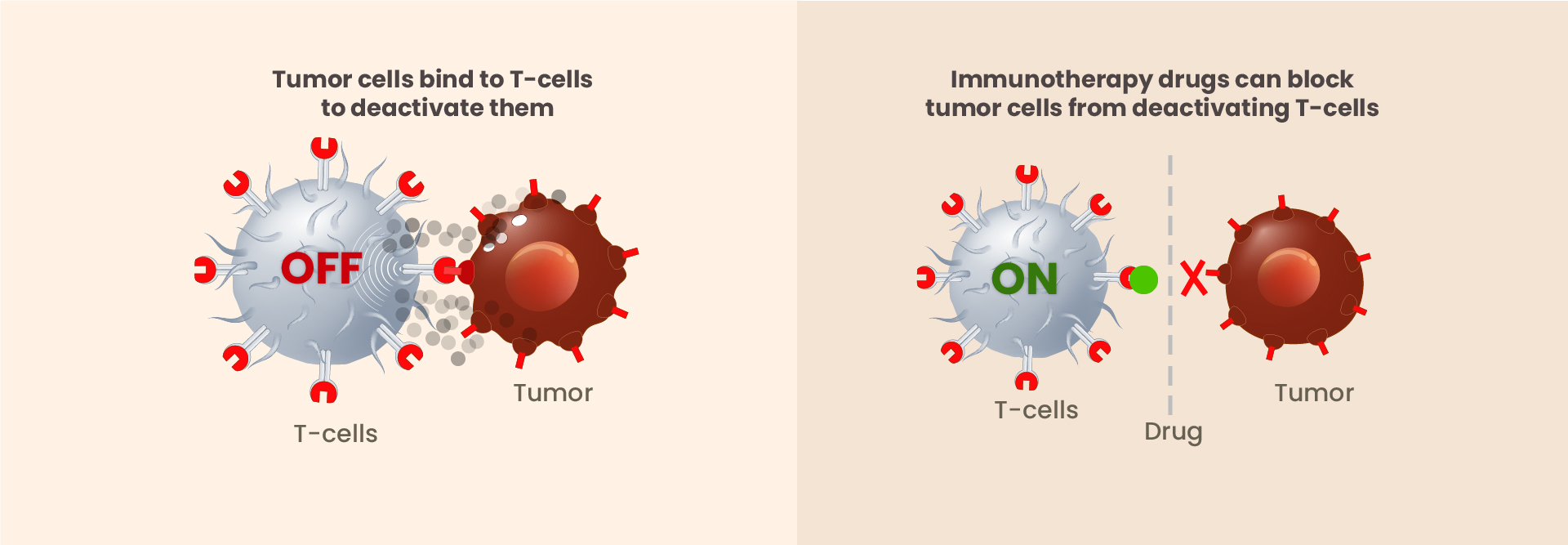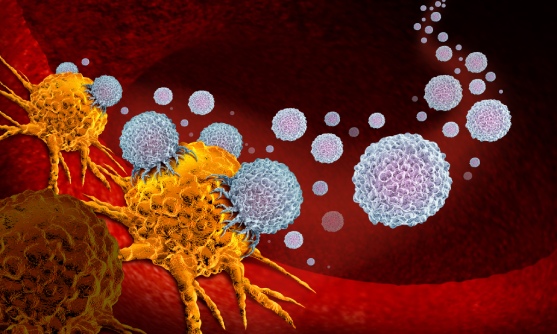Dr Amit Jotwani of Onco.com explains how immunotherapy works and how it is being used to help cancer patients.
Our body has a complete system of protecting itself from harmful infections and it also targets anything that is foreign to our body including diseases like cancer. This system is called the Immune system or Immunity.
Immune system works by various mechanisms but the most important weapon of the immune system is white blood cells called T lymphocytes. These cells keep a record of all the cells of the body and recognize them as our own cells which are not to be attacked. This happens through specific signals from the body’s own cells that makes white cells recognize them as internal.

Whenever there is a bacterial or viral infection the immune system gets activated and tries to destroy the infection causing bacteria. Similarly our body has trillions of cells which keep on regenerating as they age and many times abnormal cells are formed in this process. These abnormal cells are recognized as foreign to the body and T lymphocyte cells of the immune system destroy them immediately. This prevents further growth of those abnormal cells that might have turned cancerous.
Sometimes these abnormal cells may have an ability to escape recognition by the immune system and T cells do not kill them. As a result those abnormal cells continue to grow and form tumours and many times they can be cancerous. That is why one of the most important abilities of cancer cells is their ability to evade our immune system which would otherwise not let cancer grow at all.

Immunotherapy is a new modality of cancer treatment that works on the principle of activating the T cells of the immune system to recognize and kill the cancer cells in the body of patients. The immunotherapy treatment blocks the negative signal of cancer cells that was stopping T cells from acting against these tumours and once the cancer cells get exposed to the immune system, the T cells recognize them as harmful and destroy them immediately.
As immunotherapy is a new mode of treatment the science is still evolving and we still do not have a complete cure for all cancers. It has been found that at present, there are few cancers where Immunotherapy has shown potential to benefit patients. These cancers include kidney cancer, lung cancer, some forms of blood cancers, Melanoma skin cancers and large intestine cancers.
Research is actively going on for using immunotherapy in other cancers like stomach cancer, head and neck cancers, food pipe cancer, sarcoma cancer, prostate cancer and pancreatic cancers.
Immunotherapy does not work in all patients and doctors do certain tests on the cancer biopsy tissue to understand if there are markers for which immunotherapy has been found to be effective. For example, PD1 or PDL1 tests may be suggested by oncologists to see if we can use immunotherapy.
Immunotherapy can be used either at the time of diagnosis itself, or along with ongoing chemotherapy treatment to enhance the effectiveness of treatment or if other treatment options have failed to control the disease. You can discuss with your doctor to understand if immunotherapy is to be used and when it is to be used for treatment.
Another important thing to note about immunotherapy is that sometimes (in 3-5% patients) it may cause serious side effects that may cause more trouble to the patient. It is important to understand the chances and seriousness of those side effects against the expected benefits before you take a decision to undergo immunotherapy treatment.
As the treatment and drugs are new to the market, the treatment may be quite expensive and it is better to understand the overall cost and duration of treatment so that you can plan your finances accordingly.
Generally if the immunotherapy works in any patient the doctors may either recommend lifelong treatment of at least 2 years of treatment for sustained control of cancer else there is a chance of recurrence of disease. It is always good to discuss these things with your treating doctor in advance.
You can read more about new developments in the treatment of lung cancer here.

